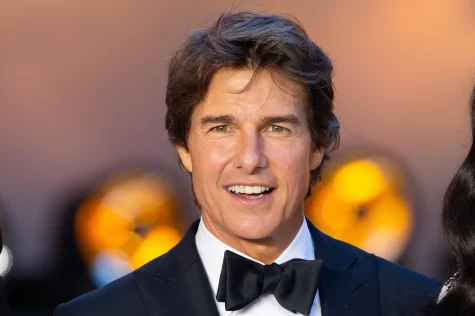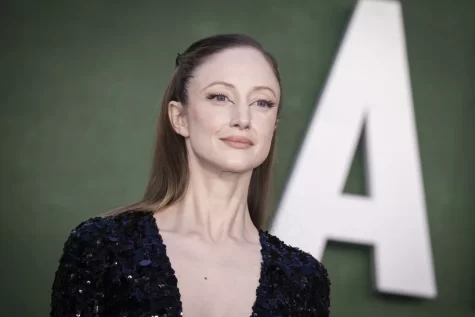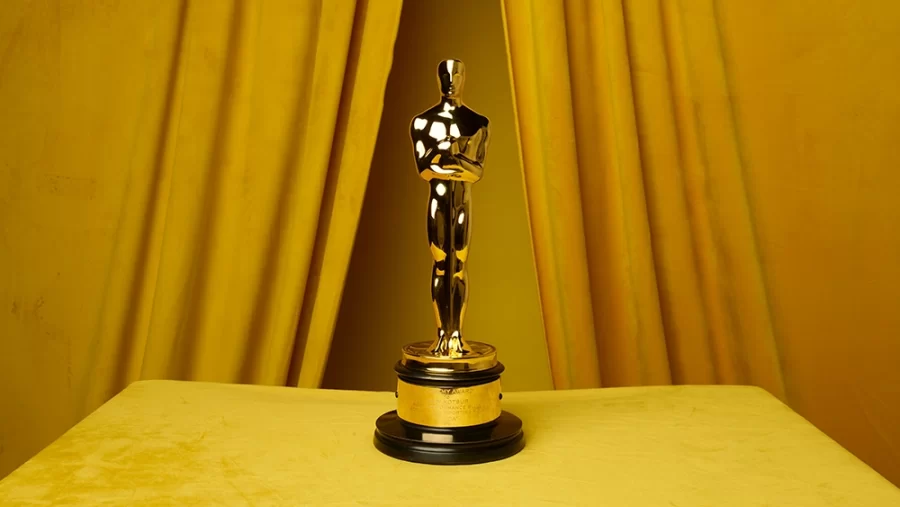Surprises and snubs from the Oscar nominations
February 1, 2023
A day often met with feelings of anticipation for fans, confusion for those in the industry who find themselves off the ballots and relief for people like my mother and I, who want to know what movies we’re going to spend the next six weeks watching, the 95th Oscar nominations were revealed the morning of Jan. 24.
A24’s “Everything Everywhere All At Once” led the nominees with 11 nominations, including Best Picture, Best Actress, Best Director and two Best Supporting Actress nominations.
Every year, fans and critics alike debate the outcome of the nominations and raise new questions unique to the year. Which films made it that shouldn’t have? Were any films snubbed? What were the most shocking nominations? Should Andrea Riseborough’s campaign be praised or shunned, and will it change the Oscars forever?
Snubs
One of the most egregious snubs of the year came from the lack of recognition for Jordan Peele’s “Nope,”, which received zero nominations. I thought “Nope” was one of the most thrilling and innovative films of the year, pioneering both IMAX cinematography, as well as night-time filming. I found myself completely enthralled by the craft and spectacle in the theater.
The film was also one of the few purely original blockbusters of the year, and in a year where the academy made a legitimate effort to put populous movies in the show (“Top Gun: Maverick,”, “Avatar: The Way of Water” and “Elvis” notably), this feels like a very glaring omission. I would have slotted it in Best Director, Best Cinematography, Best Visual Effects and Best Original Screenplay.
Peele’s first film “Get Out” was nominated for four awards: Best Picture, Best Director, Best Actor and Best Original Screenplay, the latter of which it won. Neither of Peele’s films since (“Us” and “Nope”) have been nominated for even one award, despite both in my opinon being high level works of genre filmmaking.
The other notable snub in my eyes is the lack of any recognition toward Luca Guadagnino’s adaptation of “Bones And All.” Similarly to Peele, Guadagnino’s first major effort, “Call Me By Your Name,” received four nominations, in Best Picture, Best Actor, Best Original Song and Best Adapted Screenplay, the latter of which it won.
Also similar to Peele, neither of Guadagnino’s efforts since (“Suspiria” and “Bones And All”) have seen any nominations. The comparisons continue, as the subsequent films for both filmmakers could be classified as horror, despite “Bones And All” being a romance at its core. The academy has notoriously been passive toward horror films; Peele’s initial nominations for “Get Out” were a big deal for that reason.
I would have slotted “Bones And All” in Best Cinematography, Best Adapted Screenplay and Best Actress.
Surprises
One of the biggest twists of the morning came in the form of “Top Gun: Maverick.” Not that it received nominations, a Best Picture nomination for the film has been all but a lock since awards season began, but that it got nominated in Best Adapted Screenplay, and that it didn’t get a nomination in Best Actor.

“Maverick” was nowhere to be found on pre-nomination prediction lists in the Best Adapted Screenplay category, with little to no campaigning done for the film in that regard. Many people say this was a waste of a nomination, however I think that it is a sneakily inspired choice.
The screenplay is incredibly tight and effective, and in an industry plagued by blockbuster scripts more concerned with setting up cinematic universes and finding room for cameos, a screenplay with a cemented beginning, middle and end is sadly refreshing. Not to mention the legitimately moving moments of triumph, brotherhood and emotion.
Meanwhile, many analysts and insiders – including myself – predicted a Tom Cruise Best Actor nomination, which he did not recieve.
Whether it would’ve legitimately been for Cruise’s work in “Maverick,”, or serve as a legacy nomination (like what was seen with Jamie Lee Curtis this year in Best Supporting Actress) was up for debate, but a nomination seemed like a forgone conclusion.
Cruise not seeing a Best Actor nomination opened the door for another surprise in the category: Paul Mescal’s nomination for his performance in A24’s “Aftersun.”. Mescal, internet-darling for his work in Hulu’s “Normal People” and for his currently in-turmoil relationship with singer-songwriter Phoebe Bridgers, was a late-riser in pre-nomination power rankings.
“Aftersun” won a jury prize at the Cannes Film Festival this past year, and debuted in theaters in late October.. However, the film’s quick rise in the public consciousness and subsequent nomination can mainly be attributed to its on-demand market, as its late December. at-home release aligned perfectly to be right before the January. Oscar-voting window.

Mescal’s effort in “Aftersun” has earned him the leading-role in Ridley Scott’s upcoming “Gladiator” sequel, as well as a spot in Richard Linklater’s adaptation of “Merrily We Roll Along,” which is set to be filmed over the course of 20 years, fully cementing Mescal as one of the hottest commodities in Hollywood.
Andrea Riseborough
In the biggest surprise of this year’s class, Andrea Riseborough received a nomination in Best Actress for her work in “To Leslie,” the film’s lone nomination. Now, I have not seen “To Leslie,”, but that is part of the controversy.

Prior to two weeks ago, “To Leslie” was not on the radar of any voter or media member. The film made less than $30,000 at the box office, and seemed to be another indie lost in the heat of awards season.
However, after a rare Twitter post from actor Edward Norton publicly supporting the film, and specifically praising Riseborough’s performance, people took notice of not just the film but also the suspicious nature of Norton’s post.
Norton only has 2,694 tweets in his account’s 14 –year history. For context, my account of five years has upwards of 45,000 tweets. Whether that says more about me or Norton is up for debate, but the point stands that Norton is not a frequent tweeter.
After Norton’s tweet, people noticed other celebrities begin to post on various social media platforms about Riseborough’s performance in “To Leslie,” including Kate Winslet, Jennifer Aniston and Helen Hunt. This led to debate on whether or not these tweets were genuine or artificial.
Oscar voting closed on Jan. 17, just one week after Norton’s tweet. Whether or not the tweets were paid for is up for debate, but at the end of the day, Riseborough still got the nomination. However, it may not last long.
On Friday Jan. 27, the Academy released a statement saying “We are conducting a review of the campaign procedures around this year’s nominees, to ensure that no guidelines were violated, and to inform us whether changes to the guidelines may be needed in a new era of social media and digital communication.”
While this investigation does not specifically name either Riseborough or “To Leslie,” one can infer with the mention of social media that that may be what they’re looking at.
Since this is unprecedented territory for the Academy, there is no knowledge on what this would lead to. If the nomination were to be revoked, would another actress receive her spot instead? Perhaps Viola Davis for her work in “The Woman King,”, or Taylor Russell for “Bones And All.”
Alternatively, there could be no replacement for Riseborough, and she could either retain the nomination, or the award would be voted on with only the remaining four actresses.
Madison VanravenhorstThese were just a few of the biggest shocks to me. But the great thing about awards season is that we still have the actual ceremony to look forward to, where more upsets, and twists and turns are sure to take place.


